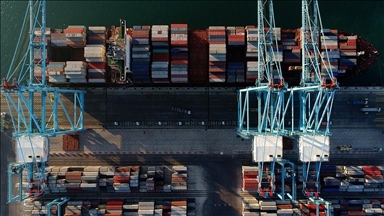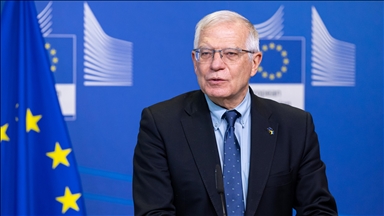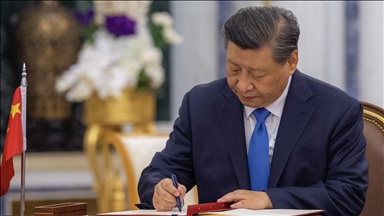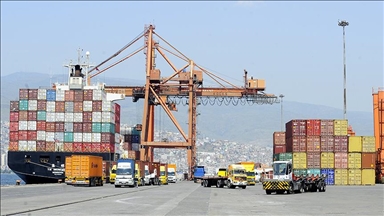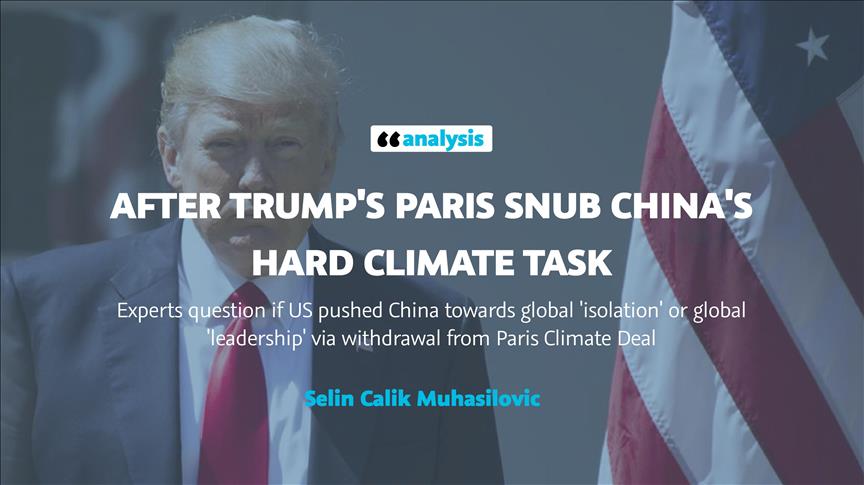
By Selin Calik Muhasilovic
ISTANBUL
U.S. President Donald Trump’s decision to withdraw from the Paris Climate Agreement has led to global debates from multiple perspectives. While his decision continues to have implications for the U.S. domestic politics and global networks, China became the center of attention after the EU decided to strengthen cooperation with China on climate change. Experts are discussing whether the U.S. pushed China towards a global “isolation” or a global “leadership” through Trump's decision to withdraw from the Paris Climate Agreement.
Myron Ebell’s impact
Stating that the U.S. gross national product will decrease to nearly $2.5 trillion within 10 years if they fully abide by the agreement, Trump kept arguing at every opportunity that this would damage the U.S. economy. However, this withdrawal decision is based on political reasons as well as economic concerns.
By declaring that he would pull the United States out of the Paris Climate Agreement, Trump aimed to exercise control over business leaders, public segments sensitive to environmental issues and, in particular, U.S. Secretary of State Rex Tillerson, who is in charge of all international agreements and pacts, and who believed, along with a number of other officials, that it would be more prudent to stay in the Paris Climate Agreement to be able to retain leverage over any future decisions. But President Trump acted on the advice of a small team led by his adviser Stephen Bannon, the EPA’s (United States Environmental Protection Agency) President Scott Pruit and the Competitive Enterprise Institute’s (CEI) Director Myron Ebell, thereby preferring to be in the same league as the likes of Syria and Nicaragua which also did not sign this climate agreement.
Especially Ebell, with the power he has as head of the CEI -- a policy center advocating withdrawal from the Paris Climate Agreement, had direct and indirect influence on changing the political and environmental direction of the U.S. Following reports that Trump was on the horns of a dilemma whether to keep his promises he made during the election campaign to withdraw from the agreement, Ebell, through the CEI, spread a video of the president promising withdrawal from international environmental pacts, whereby he managed to get support from Trump voters and influenced Trump’s ultimate decision. Ebell had recommended Trump to abolish Obama’s orders on curbing climate change and regulating carbon emissions during the transitional period of six months. All these incidents indicate that Trump followed Ebell’s advice after he took office.
On the other hand, Ebell, notorious for incessantly seeking to influence environmental policies, had written that Barack Obama’s “Clean Power Plan” was “illegal” a few months before the Paris Climate Agreement was concluded in 2015. That’s why he had been called “an environmental villain” and severely criticized by environmental activists.
Enhanced EU-China cooperation
Right after Trump declared his decision, Chinese Premier Li Keqiang and President Donald Tusk of the European Council confirmed that they would continue to abide by the Paris Climate Agreement, also announcing their intention to deepen cooperation between China and the EU against climate change. It was also decided at this bilateral meeting that a ministerial meeting be held in September. Thus, Beijing and Brussels took the first serious step following Washington’s decision of withdrawing from the pact.
European Union countries are generally willing to lead the global efforts to reduce carbon emissions together with China. This is clearly understood from the fact that the EU agrees to give 10 million euros to China, which aims to support the EU Emissions Trading System with its own program.
This bilateral meeting of Beijing and Brussels indicates that Brussels has given up on Washington about the Paris Climate Agreement and is serious about turning towards China. Moreover, the EU and China, which have been cooperating on climate change within the framework of the Kyoto Protocol for over 10 years, demonstrate through these recent meetings that their bilateral involvement in the issue has deepened.
China: A global climate leader?
After Trump’s decision accelerated steps for cooperation between the EU and China on climate change, people began to discuss whether China can be a global leader on this issue. China had previously become a hot topic of discussion in the same context when the U.S. withdrew from the Trans-Pacific Partnership and is now faced with yet another debate about global leadership.
Experts state that China can swiftly move toward environmental leadership on the world stage. An article published in the New York Times last week, which considers “the decision as the greatest strategic gift to the Chinese, who are eager to fill the void that Washington is leaving around the world”, seems to prove the actuality of these debates. Apart from EU leaders, there are those in the U.S. advocating that China should be encouraged to be the global leader on environment. For example, U.S. Energy Secretary Rick Perry “challenged China to take serious steps and fill the void created by the U.S.” on climate change.
But all these developments bring a number of questions to mind: Can leadership on climate change really be a strategic gift? Does Beijing really want this leadership? And above all, does it deserve this?
China is making investments to meet the conditions of the Paris Climate Agreement and to reduce its responsibility in climate change as the biggest carbon emitter in the world with 29 percent. For example, it surpassed Europe and the U.S. by investing $78.3 billion on renewable energy in 2016. In addition, China is the world leader in terms of its renewable electricity sources as well. However, while shutting down power plants running on coal, particularly in well-off coastal cities sensitive to pollution, it is increasing the number of its facilities that produce chemicals from coal. There are currently 46 coal-to-chemical plants in operation. After the construction of another 22 plants is completed, 193 million metric tons will have been added to China’s carbon emission annually, which was only 10 million metric tons in 2016. Moreover, Xinhua, the official press agency of China, published a report last week stating that 14,000 plants in northern China fail to meet environmental standards.
Some analysts are aware that Chinese industry has been gaining momentum with its increasing carbon emissions despite making investments to curb climate change. Stating that “Chinese leadership on climate” is not yet realistic, they argue that it is too early to ascribe such a global leadership to China. Also, while Chinese President Xi Jinping trusts his own country as a rising power with standards and institutions to sustain globalism, he does not make mention of leadership on climate in his remarks. This shows his prudence about the issue.
To conclude, it is clear that “Trump’s isolationist foreign policies” and his trends have a positive impact on China’s global initiatives. Whereas Trump aims at inward-looking policies with his slogan “America First”, China attempts to integrate its national interests with its outward-looking goals. If these two trends continue, China can extend its sphere of influence by filling the void created by the U.S. while Trump’s policies would only serve to limit the global influence of the U.S. However, Chinese success in the long run depends on how hard it will struggle to assume authority through its own efforts rather than waiting for the EU or some other official bodies to vest it with the necessary powers.



